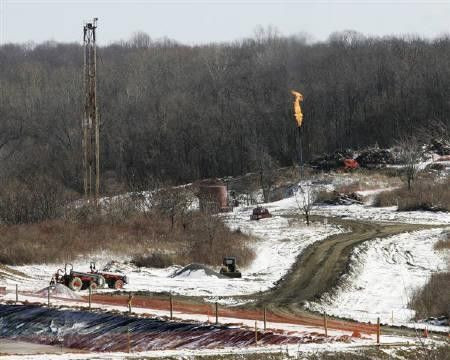U.S. EPA Delays Rule on Fracking Emissions by a Month

The U.S. Environmental Protection Agency said it will delay by a month final standards on emissions from hydraulic fracturing, its third postponement of air pollution rules since early September.
The EPA and environmental groups that sued the agency have agreed to a 35-day extension for the finalization of the proposed standards to reduce air pollution from oil and gas drilling operations, an agency spokeswoman said on Wednesday.
We pushed the final rule deadline because of the extra time we need to review the comments, the spokeswoman said.
The EPA had intended to finalize the rules on natural gas and oil drilling by February 28 next year, but now plans to do that on April 3.
The agency is under attack from Republicans in the House of Representatives and polluters who say the agency's rules will kill jobs and burden industry with extra costs as businesses struggle to recover.
In September, President Barack Obama directed the EPA to delay a rule on smog, which the agency will reconsider in 2013.
The EPA issued a draft rule on emissions from oil and gas in July. The rule would seek to cut emissions of volatile organic compounds that contribute to smog by nearly 25 percent across the oil and gas industry, and by 95 percent from gas wells drilled using the controversial technique of fracking.
The EPA said the standards would rely on existing technologies to cut emissions that contribute to smog and can cause cancer, while supporting the expansion of oil and gas production.
Any rules on fracking could force companies, including Chesapeake Energy and Exxon Mobil, to add pollution control technology to their operations.
U.S. natural gas production is growing as more than 25,000 new and existing wells use fractured drilling each year, according to the EPA.
The agency also granted a 30-day extension to the public comment period on the standards to November 30 this year, it said.
Environmentalists hoped the delay would help the EPA work out details on the rule.
It is not a devastating blow like the delay in the smog rule was, said Jay Duffy, a lawyer at the Clean Air Council in Philadelphia. We believe the EPA can make this rule stronger, but if it turns out that it becomes a way for industry to get out of regulation for a month, it will be a net loss.
(Reporting by Timothy Gardner; Editing by Dale Hudson)
© Copyright Thomson Reuters {{Year}}. All rights reserved.





















